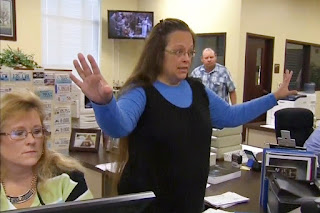by Gary Berg-Cross
The 50+ lucky people who attended Tom Flynnspirited, no animated talk at WASH recently got something extra and above his spirited, no energetic talk about ""A Radical View on Church and State." (That was about the possibility & value of a "naked public square."
The 50+ lucky people who attended Tom Flynn
We also got a nice cheat sheet handout on Tom Flynn's "95 Ways Not To Say Spirit." It's about fictional concepts, in this case from the spirit way of thinking.
Tired of expressions like, "the flag stands for the spirit of the US"? Tom sure is and has provided some help. It's in the spirit ,well approach, of handling the emotional & biases language of spirited, well heated conversations.
One thinks of J. Bentham's most famous remark regarding fictions:"To language, then -to language alone- it is that fictitious entities owe their existence; their impossible, yet indispensable existence."
A workable solution is to replace all fictions & value judgments in the conversation with neutral or grounded terms.
For example, if some claims that someone in a political debate is lying replace 'lies' with 'claims'. It there is a claim that pols are robbing us, then replace 'rob' with 'tax'.
One thinks of J. Bentham's most famous remark regarding fictions:"To language, then -to language alone- it is that fictitious entities owe their existence; their impossible, yet indispensable existence."
A workable solution is to replace all fictions & value judgments in the conversation with neutral or grounded terms.
For example, if some claims that someone in a political debate is lying replace 'lies' with 'claims'. It there is a claim that pols are robbing us, then replace 'rob' with 'tax'.
For those not attending you can see the basic idea of removing the S-word from the conversation in Tom's much earlier article in Free Inquiry. This is from the Summer of 2002 which divides the "spirit" idea into broad categories of meaning and then applies secular concepts to these.
So if you missed the talk and have lost track of your 2002 copies of Free Inquiry & want to start your new year filling in secular concept-words for the old ghostly spirit world inspired one, here is something you can use.
A start is the meaning of spirit as life as in:
‟Spirit” in the sense of LIFE has these synonyms: animation, consciousness, dash, energy, essence, feeling, spark, vitality, vivacity
Similar to the Life-Spirit idea is the use in the sense of NATURE: character, drift (as in; ‟You get my drift”), essence, gist, quintessence, substance
Spirit is used here and elsewhere a bit like the idea of a soul as if we can attribute human life to an inhabiting supernatural vapor-like soul.. For a critique of the soul idea see Julien Musolino's "The Soul Fallacy" book & also my blog on his Lecture
Spirit” in the sense of VIGOR, as in "I admired her spirit" has alternatives of: ardor, enthusiasm, gusto, liveliness, resolution, spunk, zeal
Obviously a word like "liveliness" is also somewhat in the Life sense too, but we get the idea. I can go for this substitution with gusto.
‟Spirit” in the sense of COURAGE ("I like John Wayne's spirit."): audacity, dauntlessness, determination, firmness, fortitude, resolve, steadfastness, tenacity
‟Spirit” in the sense of COURAGE ("I like John Wayne's spirit."): audacity, dauntlessness, determination, firmness, fortitude, resolve, steadfastness, tenacity
Some folks that I know have a brave/courageous psyche and are lively too. For the new year putting some of these together to describe a person seems like a good step to take. Of course we may be talking about the nature of a person who is cowardly, anxious and fearful. These seem to be more the spirit of some people now a days, but I digress unless we are talking about ‟Spirit” in the sense of MOOD as in, "Her spirits were low."
We can substitute for spirit the words attitude, disposition, feeling, frame of mind, humor, temper, tenor.
‟Spirit” in the sense of THE SUBLIME has the longest Tom-List which goes like this:
admirable, affecting, amazing, astonishing, attractive, charming, dazzling, elegant, elevated, enticing, excellent, exciting, exquisite, grand, harmonious, imposing, impressive, inspiring, lofty, magnificent, majestic, marvelous, matchless, moving, noble, outstanding, overwhelming, peerless, piquant, poignant, provoking, radiant, resplendent, seductive, sensual, sparkling, splendid, stately, stimulating, stirring, stupefying, superb, thrilling, touching, unsurpassed, venerable, virtuous, wonderful, wondrous






















